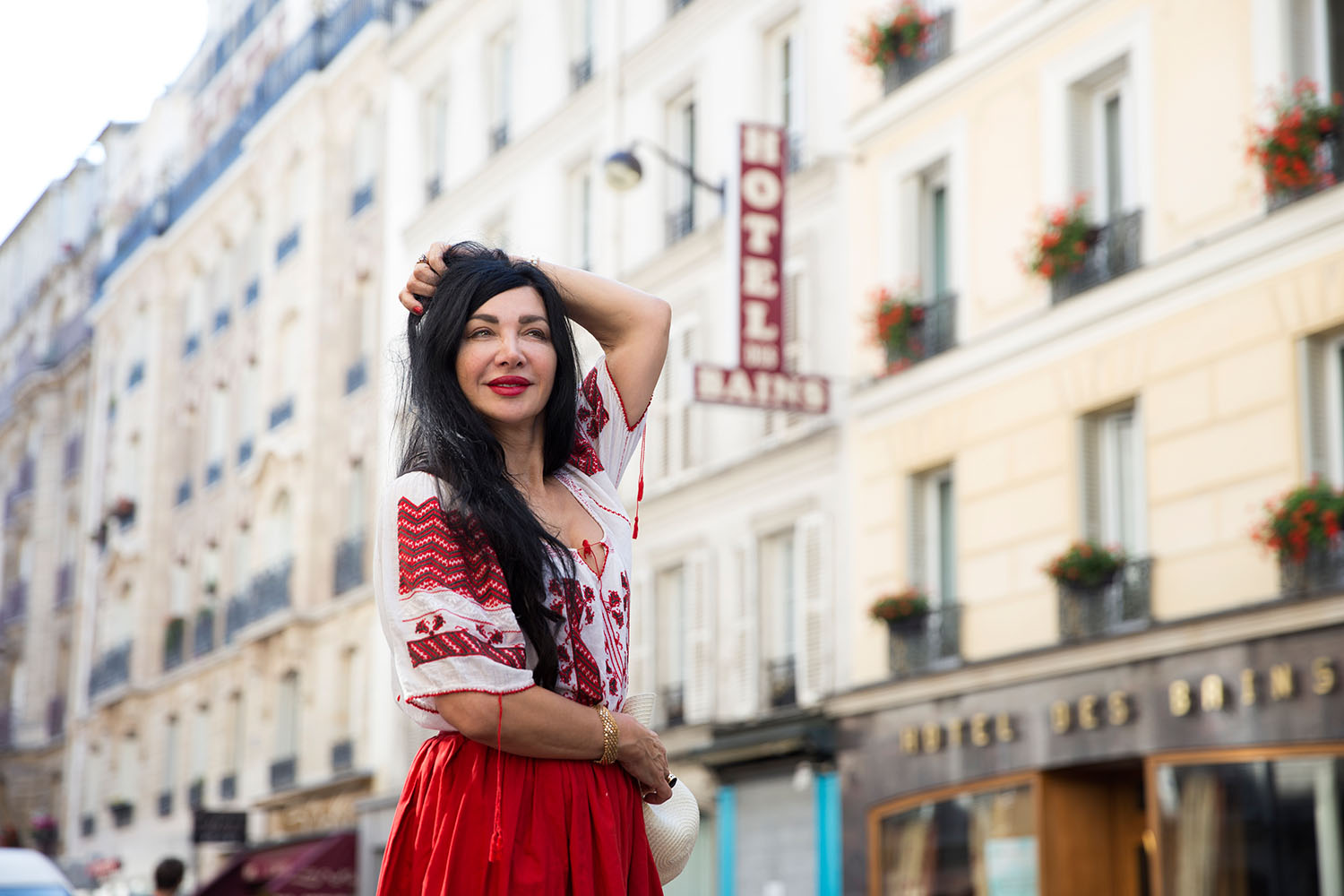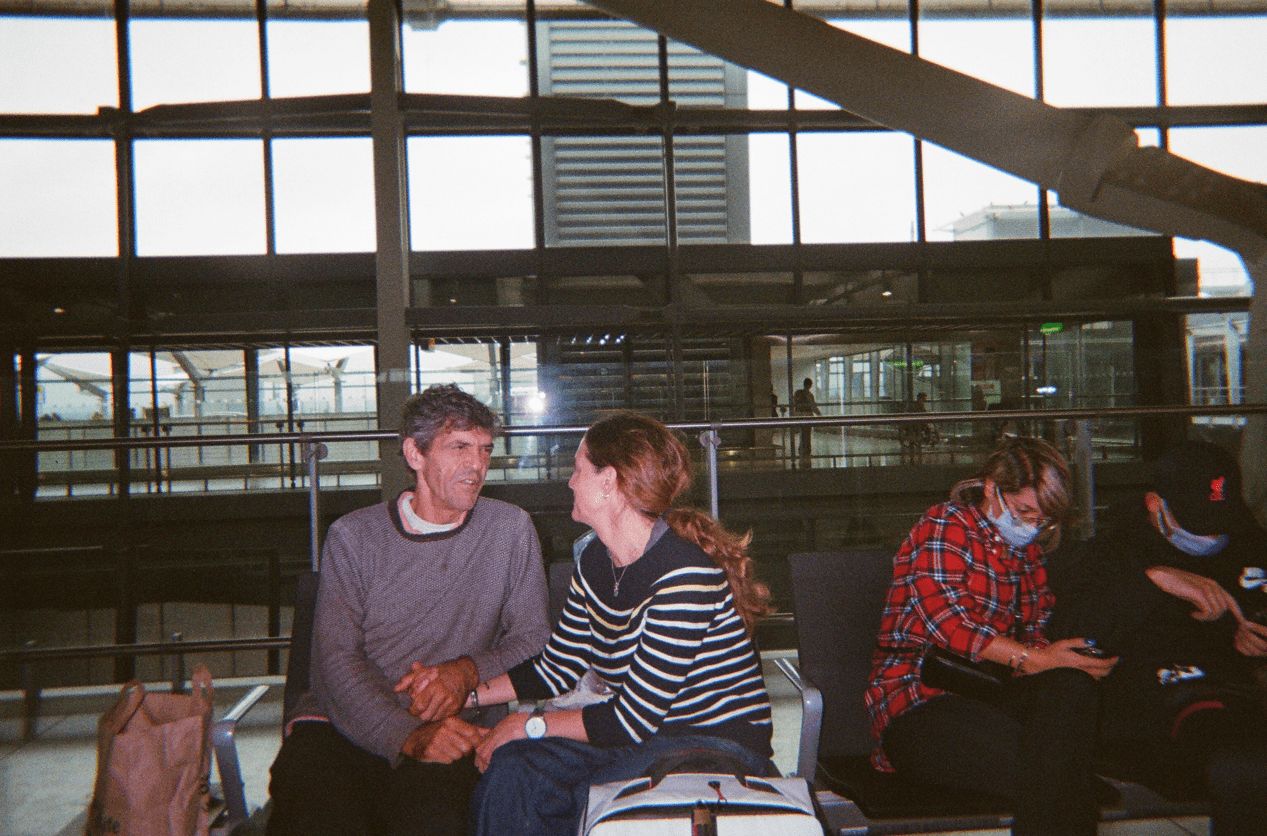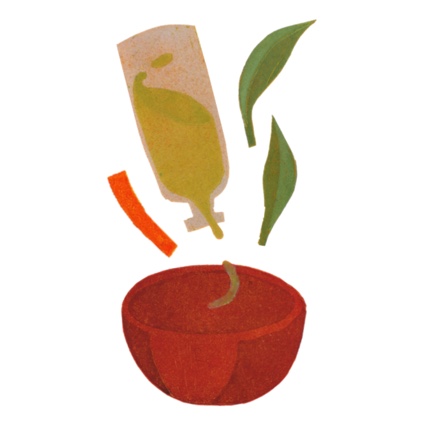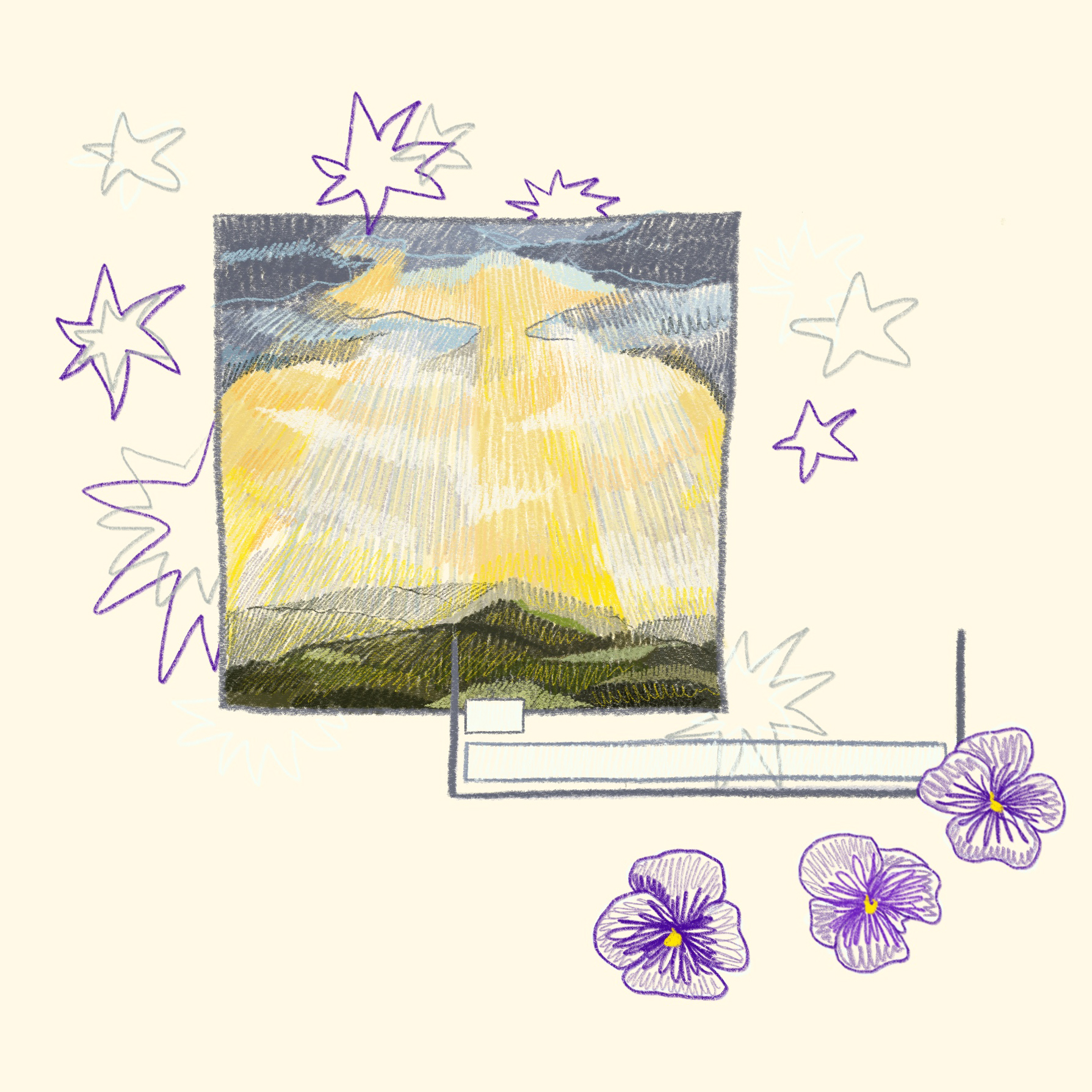
A Voice in the Storm
I’m on the black list over there, all of my books are banned… But I must always be faithful to the truth and to myself, no matter where I am.
Stranded thousands of miles away from her family, her friends and her countrymen, the Syrian poet Maram al-Masri draws her strength from an unwavering faith in the power of words and truth. When I spoke to her over Facebook, she described to me how poetry “as fragile as jasmine perfume” can be the only true, undefeated force in the face of tanks. Living now as a Parisian and fluent in several European languages, Maram travels across the continent with a book: her book of poems, Elle va nue la liberté (Liberty Walks Naked), and reads them to those living in an unending state of uncertainty and discomfort in refugee camps.
Maram, a woman so determined to fill Syrian hearts with love and peace, is tragically spurned by Syrian society and will never be allowed to return. In as much as an electronic exchange could be emotional, Maram revealed her tragic life story to me thus: as a young woman, she fell in love with a Christian in Syria, which caused her Muslim family the utmost dishonour. Belligerent and blinded by love, Maram ran away to Paris with him, permanently exiling herself from her own family. Years later, Maram found herself alone and unable to return home with her son; her status as an unmarried mother dishonouring her further in the eyes of her family.
Anguished and alone, a poet was born of Maram al-Masri. At first she wrote about her own failure in love, but she later became passionate about a new cause: exposing the sufferings of Muslim women imprisoned by marriage. The collection, Barefoot Souls (2009), consists of different portraits of women and womanhood, each poem representing the voice of an individual. The poetry brazenly tackles the taboo of certain doctrinaire Islamic customs head on: the barbarism of female genital mutilation is laid bare in the portrait of Aminata, who has “a living sorrow/ that bleeds” between her legs. Such explicit poetry, unashamedly a criticism of regimes such as Assad’s, did not go unnoticed by the authorities in Syria who instantly put her on the black list.
Then came the war. From her cramped flat in Montparnasse, Maram watched in despair as images and videos of conflict flooded her social media – the digital separation was like “living in Hell”. Her son lives in Syria. Aching to be at home to protect him, Maram suffered a prolonged torture, the revolution pervading her every thought and every dream. “My body was in France but my soul was there with them”, is how she described this split existence to me, an experience so intense that the thirst and the fear of her friends and family would keep her awake at night. Above all, she felt their desperation for justice. The mother in her feared for her son’s life, but the vengeful revolutionary in her feared more than anything that he had not joined the revolution: “I asked him: did you join the revolution? And he said yes, and I was so happy – I would have felt bad if he’d said no.”
Unable to fight alongside her son, Maram picked up her pen and fought in the only way she knew how. From being a fierce campaigner for women, Maram became the defender of all lives: “I started writing when Syrians decided to no longer put up with the humiliation and inequality and the dictator who was preventing them from leading dignified lives”. The outcome of this is the 2013 collection, Elle va nue la liberté, each poem written in both French and Arabic. I wasn’t able to find an English translation, but I can still feel the bite of her revolutionary spirit as I’m faced with the French, her extraordinarily sharp and unforgiving verse does not subside for a single line. I can’t tell whether it’s her powerful words or my hands which make the book tremble. This is poetry about the beauty of revolution, about the atrocities of Assad, and about the diaspora: those who are forced to flee, scattered into a limbo of endless uncertainty. Like her womanhood portraits, many of these poems depict individuals affected by the conflict, but there are outbursts of Maram’s personal anguish in certain poems; one captures her experience of never entirely being in either place: “We are the exiles/ we live on the pills of sedation/… We sleep embracing our mobile phones/ to the light from our screens.”
9
Elle prend ton visage She takes your face
Entre ses mains. Between her hands.
Puis elle t’embrasse Then, she kisses you
Y écrasant sa bouche. Imprinting her lips there.
Tu vas être enterré You will be buried,
O martyr Oh young martyr
Avec les lèvres de ta mère With your mother’s lips
Collées a ta peau. Lingering on your skin
The poetry is never convoluted or hermetic in meaning – they are songs about and for Syrians, young and old, lucid to any listener, whether they have a poetic ear or not. Scenes of suffering, fear and uncertainty characterise the poems and some pay homage to those known to Maram, their lives lost to the revolution. Yet the occasional flame of hope splutters free from the lines laden with misery: the “children of Syria” fight with love in their hearts, dreaming of being birds playing in the sky one day, and a baby is born in the midst of gunfire with the name Houriah, ‘Freedom’. Each poem captures but one moment, one individual, one scene of destruction, but each one resonates in the hearts of all Syrians.
When I found Maram on Facebook, I spent a while scrolling through her page. Her frequent posts indicate her dedication to following the news of the conflict, no different from any Syrian marooned in Europe. Most statuses spread love and support for her friends, as Facebook is the only channel of communication remaining to those who have lost their home addresses and telephones in the chaos. Above all, I was astounded by her multilingualism: she publishes statuses in French, Italian, Spanish, Arabic, German and English. Her fans from all across Europe express their love of her poetry in all of these languages: for a rare moment in this conflict, a conflict becoming increasingly divided into East and West, Maram has succeeded in touching the hearts of Syrians and Europeans alike, uniting them by her compelling compassion and poetry.
Even through my computer screen, I was stunned by the radiant joy which pours out of her every photo. Her long, dark hair and smiling, sparkling eyes led me to believe that she was many years younger than she is, and had suffered far less than she has. I imagine her as a hopeful presence in those camps of dejection, her bright smile warming the hearts of dispirited children, all too similar to her own son. Maram soars across Europe, a true Syrian nightingale, her songs reigniting hope in those who had abandoned it and who for so long had been cut off from a comforting voice in the storm.
“I have to go to these camps,” she says. “It’s all I can do. I can’t go into Syria – I’d be put straight into prison, or else killed. There’s nowhere to hide – this is not really war, there’s no real battle between equal soldiers, there’s only massacre.” Traveling from France to Turkey to Lebanon, Maram reads from Elle va nue la liberte, and in return listens to horror stories from the thousands of refugees she meets. The suffering never becomes less shocking to her, but she continues her tragic pilgrimage through the camps nonetheless. “I’m not a heroine, nor could I be one. But they listen carefully; often they cry when I read, and talk to me about what has befallen them. I never know what happens to them afterwards, but I still hear their voices.”
Maram’s poetry is not a weapon. She doesn’t write to incite more violence, or to encourage any more military involvement from France and the West. She writes in the hope that one day her country will be at peace. Towards the end of this collection of horrors and mourning, we meet Houriah, who is determined to stay alive, despite everything she has suffered: “Her name is Freedom, / She walks naked … / She crosses the land / Her children, clinging to her arms … / They slit her throat / But still she sings”. In this image of Freedom, I see Maram crossing European lands, singing her nightingale’s songs to the children of her beloved Syria.
Maram reading her poetry to music: https://www.youtube.com/watch?v=Jfm4cMPhTq0
Photo credit: Maram al-Masri







